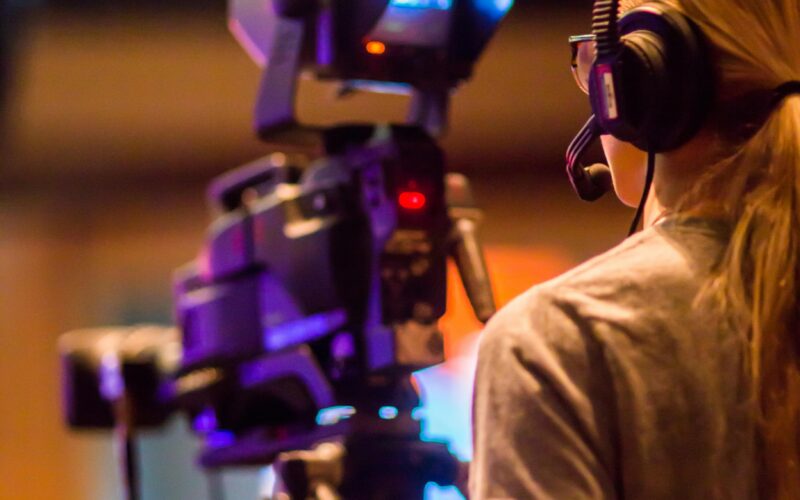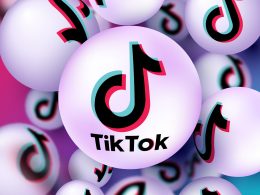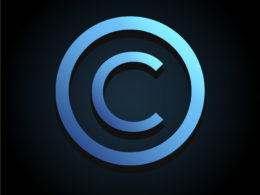On Friday, October 25, 2024, the Brooklyn Entertainment and Sports Law Society (“BESLS”) held the Fourth Annual Sports Law Symposium entitled “Global Sport: Legal Lessons from the Olympic Games.” The Symposium consisted of three panels and concluded with a Keynote Conversation.
The Symposium’s second panel, “Surfing the Channels: Broadcasting & Media Rights,” was moderated by Mark Conrad and showcased a conversation with panelists Martin Edel, Christopher Chase, and Brett Goodman.
THE PANELISTS
Mark Conrad is a professor of law and ethics, sports law, the business of sport, and media law, amongst other subjects at Fordham University’s Gabelli School of Business. Professor Conrad received his law degree from New York Law School, an M.S. in Journalism from Columbia University, and a B.A. from City College of New York. Professor Conrad’s book, “The Business of Sports – Off the Field, In the Office, On the News,” provides one of the most comprehensive texts on the subject.
Brett Goodman is General Counsel at the NBC Sports Group. He handles all legal matters for NBCUniversal’s sports businesses, broadcast, cable, and digital platforms, such as the NBC Television Network, NBC Olympics, Golf Channel, and numerous regional sports networks throughout the country. Mr. Goodman negotiates with many large sports organizations to craft media rights deals; for example, he served as the lead drafter of NBC’s many Olympic rights bids, and he negotiated agreements with the WNBA, Big Ten, Premier League, and other professional athletic leagues. Mr. Goodman graduated from Princeton University in 1990 and later received his law degree from Columbia University Law School.
Christopher Chase is a Partner at Frankfurt, Kurnit, Klein & Selz, where he practices law in the fields of intellectual property, advertising, sports, and entertainment law. He negotiates brand and celebrity contracts, including licensing deals, content distribution agreements, and sponsorship and event promotion agreements. Mr. Chase founded Frankfurt Kurnit’s Sports Industry group, and he has represented leagues, athletes, production companies, and brands on transactional and intellectual property matters like sponsorship and media rights agreements.
Martin Edel is co-chair of the Sports Law Practice at Goulston & Storrs, advising universities, professional teams, and sports leagues on various sports law matters. He is an Adjunct Instructor of Sports Law at Columbia Law School and an Adjunct Professor of Antitrust Law and Sports Law at Brooklyn Law School. He also mediates for the Court of Arbitration in Sports (“CAS”). Mr. Edel has been named a Super Lawyer in Sports and Entertainment by SuperLawyer.com, and he was recognized as one of the top 30 leaders in sports law by Bloomberg.
MODERN SPORTS MEDIA RIGHTS ISSUES
To begin, the panelists discussed the overarching theme of broadcasting and media rights in sports and entertainment: media rights deals. These negotiations and contracts allow leagues like the National Football League (NFL) to air their games and other agreed-upon content on specific channels, websites, and other streaming and internet services.
Professor Conrad began by asking the panelists to discuss the key issues attorneys on both sides of the table will consider prior to entering a negotiation. First, knowing one’s place in the negotiation is important to set expectations for the outcome. For example, licensors like athletes and sports leagues aim to offer as little content and rights as possible, keeping as much as possible for themselves. On the other hand, licensees like NBC Sports Group will want to obtain the most amount of content and brand rights possible.
DEFINING TERMS & SCOPE
All three panelists highlighted the importance of defining terms during negotiations and contracts. Nearly all contract disputes boil down to disagreement on how a term was defined. In the context of sports law, defining terms includes detailing exactly what content is included within a contract for brand rights.
An additional issue for the panelists is to consider the scope of the media rights on the table. This encompasses where the games will air, whether that is on cable and broadcast television or streaming services and social media platforms. The latter method of consuming sports has created a new method of defining the scope of rights: whether to consider and include new and emerging technologies in these media rights deals. This aspect of the scope of rights is ever-evolving, and the panelists did not specify any shift toward a standard for inclusion of new and emerging technologies. Also included in scope of rights negotiations are geographic considerations. The panelists and those with whom they are negotiating will generally discuss the relevant U.S. locations included within the deal in question. When the International Olympic Committee is at the negotiation table, however, the attorneys must define where national coverage ends, and other countries’ broadcasting rights begin.
The scope of media rights also must define which sports events are included in the rights deal. For example, Mr. Goodman discussed his experience in defining whether their NBC’s rights to the Olympic games include both summer and winter Olympics or just one.
EVOLVING ALONGSIDE TECHNOLOGY
One of the panelists articulated “sports consumption is the only thing working for media companies lately.” Many media companies are finding that, in this modern age of technology, providing game content, both in the form of short clips posted on social media and streaming live matches online, pulls in more viewers than other, more traditional forms of media such as television and news broadcasting. The fight for short form media has also opened up new exclusivity discussions within media rights negotiations, such as who has the right to post and/or air short form content such as clips from games, when those with rights are able to post the clips (during or after the live footage of the game), and on which social media platforms they can post clips and videos.
Mr. Goodman mentioned the difficulties regional sports networks (RSNs) face concerning the current streaming-focused model. Cable usage has strongly declined and RSNs can no longer broadcast sports events the same way or on the same channels as before. The rise of streaming services like Peacock as consumers’ preferred method to watch games has pushed this shift. Additionally, many sports leagues have moved their media rights deal-making and broadcasting in-house. For example, the NFL has taken everything in-house, and no local broadcasters have rights to their games. A few leagues, like the NHL, continue to use RSNs.
When asked if technology and easier access to sports have shifted priorities for companies like NBC, Mr. Goodman stated NBC is a most attractive partner for media rights now, as it’s the only platform to broadcast in a complementary manner. This complementary relationship exists because NBC has placed a foot in the shrinking world of cable and broadcast television as well as in the online streaming service world via Peacock TV. By doing this, everyone, including licensors, licensees, and consumers, wins.
For example, Peacock was the exclusive location to view the 2024 Olympics. Through this arrangement, cable viewers could watch the Olympics on their usual broadcast channels while the “cord-cutters,” someone who chooses to stop subscribing to cable television, could watch events through Peacock’s online streaming service. With the rise in streaming services and new technologies comes increased competition. Despite this, NBC has persevered and found ways to keep their foothold in the sports broadcasting sphere, including producing content for other streaming platforms like Amazon Prime.
RECENT WNBA & NBA MEDIA RIGHTS DEAL
Mr. Goodman shared that the NBA, WNBA, and USA Basketball were all at the negotiation table for the WNBA’s new media rights deal, working together to create a mutually beneficial solution. Mr. Goodman highlighted the importance of the NBA’s inclusion of themselves at the negotiation table as well as their investment in the WNBA for promotion of women’s sports as well. NBC holds the WNBA games’ media rights beginning in the 2026 season.
The Fourth Annual BESLS’ Sports Law Symposium was an interesting and cutting-edge event, and BESLS thanks all of the panelists, moderators, and attendees for making the day a success!
Lexi Svarczkopf is a member of Brooklyn Law School’s Class of 2028




